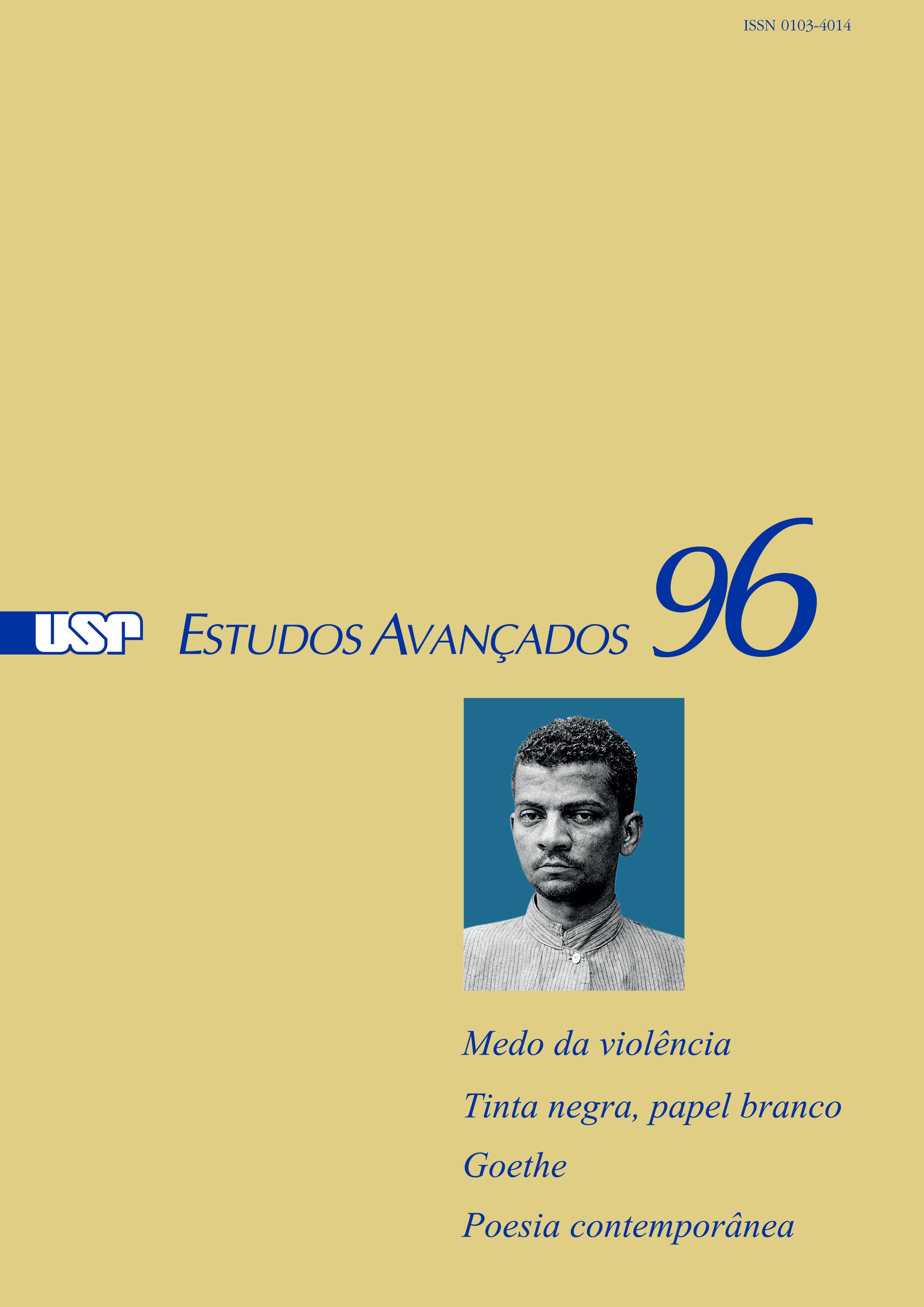Poesia A glorificação do sensível
DOI:
https://doi.org/10.1590/s0103-4014.2019.3396.0017Keywords:
Lyricism of Goethe, Symbol of the Ouroboros, Verses of occasion or circumstance, West-Eastern Divan, Poetry of sentienceAbstract
This essay seeks to highlight some features of Johann Wolfgang von Goethe’s extensive lyric work, from the “occasion” verses with which he greets his maternal grandparents in the New Year of 1757 until shortly before his death in March 1832. Distinguished by a prolific interpenetration of styles, forms, motifs and also of various traditions of European lyricism, Goethe’s poetic work – endowed with extraordinary onomaturgical strength and inclined to consummate in the word an epiphany of the idea from the phenomenon – presents to us, in some more “prosaic” moments, a surprisingly modern facet. This “modernity” can also be pointed out in the West-eastern Divan cycle, inspired by the Persian poet Hafiz and first published in 1819, which integrates lyrical expression (the ghazals and other poems) and essayistic discourse (in “Notes and Studies for a Better Understanding of the West-Eastern Divan”) into the whole and cohesive unity. This cycle also manifests a fictional game of depersonalization and masking, which later reverberates in the great poets of impersonality and personae, such as Robert Browning, W.B. Yeats, and Fernando Pessoa.
Downloads
Downloads
Published
Issue
Section
License
Estudos Avançados não celebra contrato de cessão de direitos autorais com seus colaboradores, razão pela qual não detém os direitos autorais dos artigos publicados. Os interessados em reproduzir artigos publicados na revista devem necessariamente obter o consentimento do autor e atribuir devidamente os créditos ao periódico.


